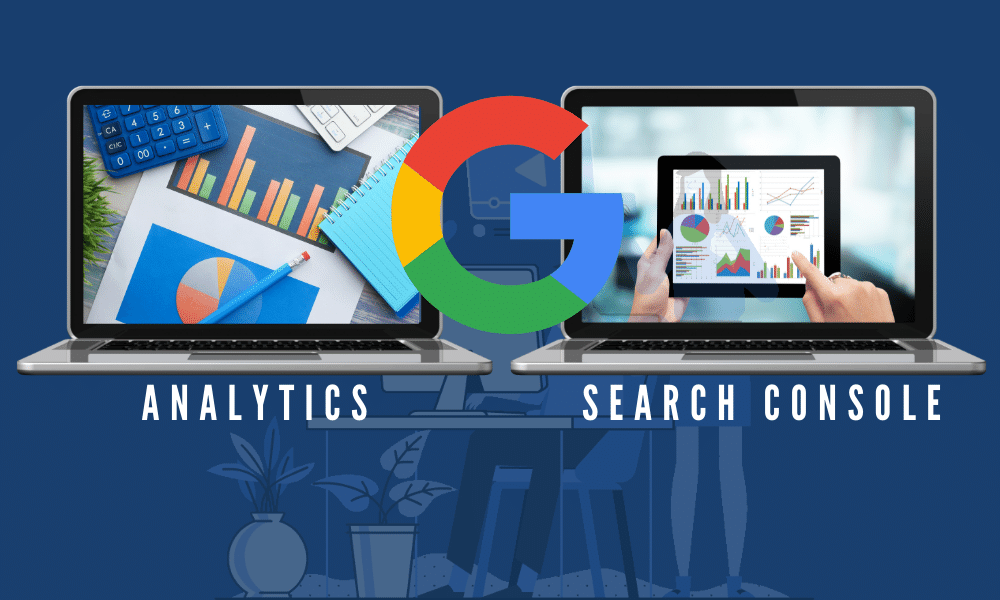Over the past two decades, Google has emerged as a dominant force in the online marketing analytics sphere. Because Google understands the connection between search engines and advertising, it regularly updates its search engine algorithms.
Although many software companies offer tools for investigating online marketing analytics, they are not free. In contrast, Google’s suite of online marketing analytics tools is free. Why? Because Google uses data obtained by search engine queries to stay dominant.
Two of Google’s most popular tools are Google Analytics and Google Search Console. To an average search engine user, these tools might seem similar. However, a deeper look into individual features reveals some critical differences. This article discusses those differences.
What is Google Analytics?
Today, Google Analytics (GA) is part of the Google Marketing Platform, “a unified advertising and analytics platform for smarter marketing and better results.” First, however, understanding why Google put GA inside a marketing platform requires knowing a little history.
In 2005, Google “acquired the web statistics analysis program Urchin.” Within months, Google relabeled the software Google Analytics. In the sixteen years since the acquisition, Google has consistently updated and improved the software. Consistent improvement is a crucial distinction given the speed with which technology evolves. As such, features offered by GA match modern search engine technology and user intent.
What is Google Search Console?
Google Search Console (GSC) is a webmaster tool specifically designed to help web admins improve website performance. GSC helps web admins “measure…search traffic and performance, fix issues, and make your site shine in Google Search results.” GSC measures impressions. In other words, it helps web admins determine web searcher intention.
Formerly known as Google Webmaster, GSC does not measure individual website visitor performance but rather how a website looks to everyone. As a result, GSC helps web admins create web pages for specific groups of web searchers. For example, people searching for the best shoes.
Differences Between GA and GSC
The above information highlights one significant difference between GA and GSC. GA began as a company acquisition (Urchin), whereas GSC is an internal development created by Google’s researchers. Another difference is the type of data. GA’s data is objective, flexible, and open to interpretation. In contrast, GSC presents performance data and suggestions about improving website performance. Nonetheless, highlighting GA and GSC features will make differences clear.
Google Analytics Features
Custom Reports
GA presents analytic data results in easily understood reports. In addition, advanced users can create custom reports based on specific business goals. Custom reports let web admins focus on particular areas of a website’s performance that need improvements. Generating custom reports is not as intimidating as some might think. GA has a solution gallery with user-submitted solutions templates.
Conversion Tracking
Most websites have conversion points, i.e., contact forms and e-commerce sales. GA’s conversion tracking lets a web admin see when a site visitor converted to something connected to the website. For example, if someone came to the website via another source, conversion tracking identifies where.
Measure Web Traffic
Most e-commerce businesses use multiple ad campaigns to drive traffic to their website. GA uses parameters to run traffic reports. Quickly add the parameters to the URL:
- “Utm_source”
- “Utm_medium”
- “Utm_campaign”
- “Utm_term”
- “utm_content”
For example, suppose you want to know how much traffic June’s summer newsletter campaign brought in. The “utm_term” parameter is “June.” The “utm_source” parameter is “summer_mailer.”
Keyword Referrals
Search Engine Optimization (SEO) depends on keywords. Using GA, web admins can see which keywords search engine users input to find your website. This information helps refine an SEO strategy.
Flow Visualization
GA presents everything a visitor did while exploring your website in a defined flow visualization chart. There are several of them within GA. For example, the behavior flow visualization report shows how users went from one page to the next page.
Google Search Console
Page Positioning
GSC helps web admins refine their website positioning on search engine results pages (SERPs). This metric is keyword and page-specific, meaning GSC tells web admins what keywords led visitors to what pages within a website.
User Interaction
More useful metrics give web admins insights into what visitors do on the website. The performance report includes impressions, total clicks, click-through rate, and average position.
Page Indexing
The first step in getting a website noticed in Google’s search engine is page indexing. GSC employs a set of reports that help web admins with the page indexing process. First, the URL inspection tool aids in making sure pages are indexable. Second, GSC logs what pages were not indexed and why in the coverage report.
Mobile Indexing
A recent report found that more than 90% of global internet users access the internet from smartphones and other mobile devices. GSC has a mobile usability option that tells a web admin what pages are optimized for mobile use and which ones aren’t and why.
Penalty Monitoring
Google has strict rules about tricking its search engine into listing a website high on a SERP. Get caught, and the website is penalized. GSC tells a web admin about any manual action taken by Google.
Hire a Reputable Digital Marketing Agency
Google Analytics and Google Search Console do different tasks that are crucial to maintaining effective website administration. Consequently, both tools work best when used together because they complement each other. When hiring a digital marketing agency, the agency must understand the differences between GA and GSC. GA presents subjective data and GSC objective data.
One such digital marketing agency is Web Rocket Media! Our experts build websites from the ground up and regularly monitor them with GA and GSC. In short, GA helps develop SEO, and GSC lets web admins know how well the SEO strategies work. In closing, Web Rocket Media has the SEO experts that keep websites at peak performance.

